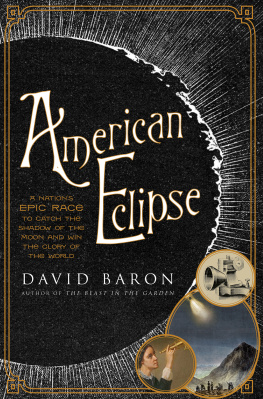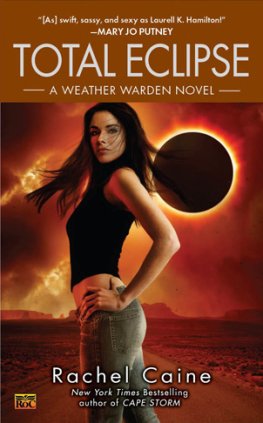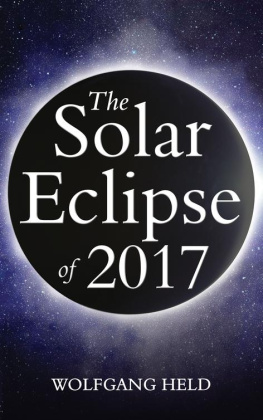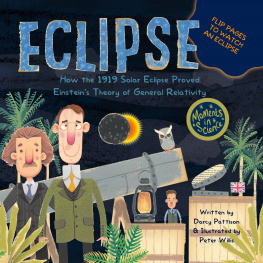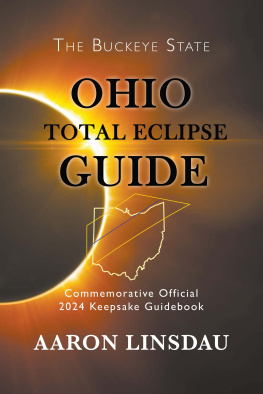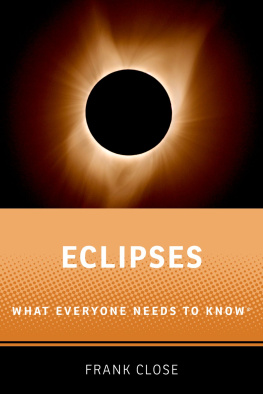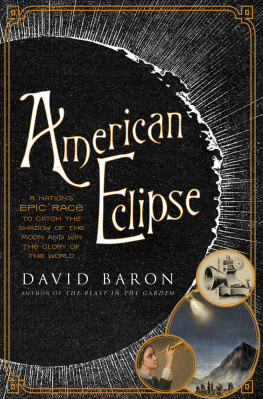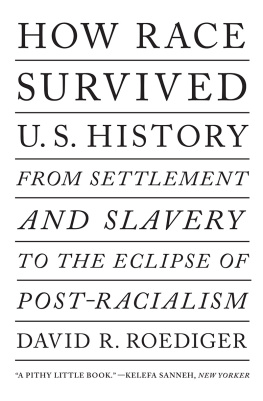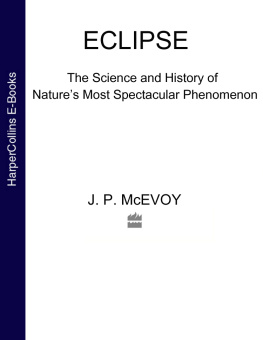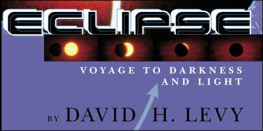
AMERICAN
ECLIPSE
A Nations
Epic Race to Catch
the Shadow of
the Moon and Win
the Glory of the World
David Baron

LIVERIGHT PUBLISHING CORPORATION
A Division of W. W. NORTON & COMPANY
Independent Publishers Since 1923
NEW YORK LONDON
F EW REMARKS HAVE SO PROFOUNDLY CHANGED THE TRAJECTORY of my life. At the time, in 1994, I was working as an NPR science correspondent in Boston, and I had been assigned to report on an annular solar eclipse (for a definition, see page 37) that was to cross nearby New Hampshire. The tenth of May found me in the path of annularity, where, through protective Mylar glasses, I watched the sun metamorphose into a brilliant golden ring. It was an impressive sight, yet Williams College astronomer Jay Pasachoff, a veteran of such conjunctions of the sun and moon, helped put the event in context. In an interview, he explained that a partial solar eclipse, even an annular one, is nothing compared with natures most awesome show, a total solar eclipse. He then offered some advice. Before you die, he said, you owe it to yourself, at least once, to experience totality. It was Jays urging that led me, four years later, to Aruba, where I first encountered the solar corona. My opening acknowledgment, therefore, must go to Jay Pasachoff. If not for his remark all those years ago, my passion for eclipses likely would never have been ignited, and without that passion, I surely would never have written this book.
Todd Shuster, my gifted and tireless agent, offered encouragement, ideas, and profound patience when I told him, after that initial experience in Aruba, that I aimed to write a book about eclipsesbut not just yet. I suggested that we hold off for nineteen years, for what better moment to publish than in the summer of 2017, when the moons shadow would traverse the United States from the Pacific to the Atlantic for the first time in almost a century. In 2011, Todd and I dusted off my vague book idea, and I began to hunt for a concrete story to tell. I soon discovered the little-known tale of the total solar eclipse of July 29, 1878. Its rich amalgamation of lively characters, weighty themes, and adventurous settings seemed to offer fertile raw material, so I shared this embryonic book concept with my editor, Bob Weil. How I got so lucky to work with such a brilliant man, I will never know. Bobas usualsaw how to elevate the story far beyond my original notion, motivated me to do my best work, and, when I ultimately handed in the manuscript, took what I wrote and invariably made it better. I cannot adequately express my thanks to Bob, who nurtured this book and remained its unwavering champion.
Pulling off a book that involved so much archival research required a tremendous amount of support, financial and otherwise. I am grateful to the Alfred P. Sloan Foundation, specifically Doron Weber, for generously underwriting this endeavor. My thanks go, as well, to the Charles Redd Center for Western Studies at Brigham Young University, which provided supplemental funding to visit archives in Wyoming and Colorado. Uncountable librarians, archivists, and curators also assisted me in innumerable ways, and while I cannot thank them all by name, some deserve special recognition.
In Washington, Mark Mollan doggedly tracked down items hidden deep inside the National Archives, Richard Stamm led me through the Smithsonian Castle to the site of Joseph Henrys office (where Edison famously exhibited his phonograph in April 1878), and Yann Henrotte gave me a personal tour of the Arts Club of Washington, formerly the home of Cleveland Abbe. Thanks also to Janice Goldblum at the National Academy of Sciences, Gregory Shelton at the U.S. Naval Observatory Library. Norma Rosado-Blake at the American Association for the Advancement of Science, and Tad Bennicoff, Ellen Alers, and Courtney Bellizzi at the Smithsonian Institution Archives.
In Pennsylvania, Marianne Kasica at the University of Pittsburgh helped me sift through Samuel Langleys records from the Allegheny Observatory, and Nancy Miller and Tim Horning at the University of Pennsylvania facilitated my exploration of George Barkers papers. Across the ocean at the University of Exeter, Angela Mandrioli offered similar assistance with the correspondence of Norman Lockyer. Nan Card at the Rutherford B. Hayes Presidential Library and Museums in Fremont, Ohio, and Jascin N. Leonardo Finger at the Nantucket Maria Mitchell Association graciously answered myriad questions about items in their collections. At Vassar College, where many of Maria Mitchells writings have been archived, Dean Rogers kindly photocopied and forwarded hundreds of pages of relevant material, and Debra Elmegreen and Colton Johnson responded to my queries about the schools illustrious history. On my visit to Poughkeepsie, Fred Chromey showed me the observatory where Maria Mitchell hosted her dome parties, and when I ventured farther upstate to Hamilton College, archivist Katherine Collett opened the papers of C. H. F. Peters to me.
At the University of Michigan, which houses the James Craig Watson Papers, my thanks go to Malgosia Myc and her team at the Bentley Historical Library, and to Karen Wight, who gave me a tour of Watsons old workplace, the Detroit Observatory. At Eastern Michigan University, in nearby Ypsilanti, Norbert Vance permitted me to seeand, thrillingly, to touchthe very telescope that Watson took to Wyoming to find Vulcan, and at The Henry Ford, in Dearborn, Stephanie Lucas gave me a rare behind-the-scenes look at Edisons reconstructed Menlo Park laboratory and an up-close view of an original tasimeter. In Texas, Jessica Baber and Christy Morton of the Layland Museum of History aided me in reconstructing what life was like in Johnson County at the time of the 1878 eclipse. In Iowa, at the Sioux City Public Library, Kim Walish spent hours on my behalf scrolling through streaked and blurry microfilm to find, and then decipher, D. H. Talbots eclipse report from Wyoming Territory.
In modern-day Wyoming, Larry Brown at the State Archives tracked down many items for me, including the 1881 coroners inquest into the lynching of Big Nose George Parrott. In Rawlins, Palma Jack at the public library shared her deep knowledge of local history, and Corinne Gordon and Carol Reed at the Carbon County Museum allowed me to peruse that institutions archives. Dan Kinnaman, the museums historian emeritus and author of several books on the regions early settlement, opened his vast personal collection of books and photographs to me. Also connecting me to Wyomings past was a North Carolinian, Craig Galbraith, who shared items that his great-great-grandfather Robert M. Galbraith had handed down through the generations, including recollections of 1878 Rawlins and of Thomas Edisons visit to town.
As an independent writer unaffiliated with a university, I am blessed to live in a community with a first-rate public library system. At the Boulder Public Library, Ann Berry and Laurel Seppala-Etra cheerfully filled my constant requests for interlibrary loan material, and the team at the Carnegie Branch Library for Local History (Wendy Hall, Hope Arculin, Marti Anderson) handled the many reels of microfilm that arrived from near and far. At the Denver Public Library, Lisa Flavin and Coi Drummond-Gehrig helped me find and scan many of the illustrations in this book. Others who assisted my quest for artwork were Iren Snavely at the State Library of Pennsylvania, Ann Passmore at Penn State, Jennifer Claybourne at the University of Minnesota, Jean Lythgoe at the Rockford Public Library, Maria McEachern at the John G. Wolbach Library of the Harvard-Smithsonian Center for Astrophysics, and Leonard DeGraaf of the Thomas Edison National Historical Park.
Next page
